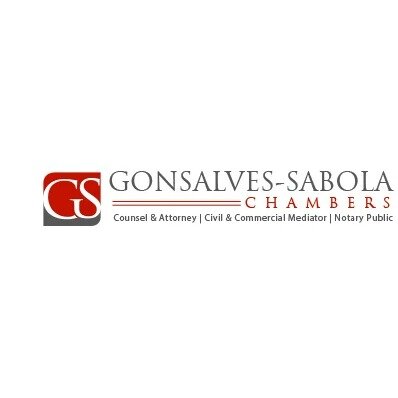Best Trusts Lawyers in Nassau
Share your needs with us, get contacted by law firms.
Free. Takes 2 min.
List of the best lawyers in Nassau, Bahamas
About Trusts Law in Nassau, Bahamas
Trusts are a popular estate planning tool in Nassau, Bahamas, allowing individuals to protect their assets and pass them on to beneficiaries according to their wishes. A trust is a legal arrangement where a trustee holds assets on behalf of beneficiaries. Trusts can be used for various purposes, such as safeguarding assets, minimizing tax liability, and providing for family members.
Why You May Need a Lawyer
It is advisable to seek the guidance of a lawyer when creating a trust to ensure that it is structured properly and complies with local laws. A lawyer experienced in trusts law can help you navigate the complex legal requirements, protect your interests, and ensure that your wishes are carried out effectively.
Local Laws Overview
In Nassau, Bahamas, trusts are governed by the Trustee Act and other relevant legislation. Key aspects of local laws that are particularly relevant to trusts include the duties and responsibilities of trustees, the validity and enforceability of trusts, and the rights of beneficiaries. It is essential to understand these laws to create a trust that meets your objectives and complies with legal requirements.
Frequently Asked Questions
1. What is a trust?
A trust is a legal arrangement where a trustee holds assets on behalf of beneficiaries, according to the terms set out in a trust deed.
2. Who can create a trust in Nassau, Bahamas?
Any individual or corporation can create a trust in Nassau, Bahamas.
3. What are the benefits of creating a trust?
Benefits of creating a trust include asset protection, tax planning, and providing for beneficiaries.
4. How do I choose a trustee for my trust?
When choosing a trustee, consider someone who is trustworthy, competent, and willing to fulfill their duties diligently.
5. How can a lawyer help with creating a trust?
A lawyer can assist with drafting the trust deed, advising on legal requirements, and ensuring that the trust is structured appropriately.
6. Can a trust be changed or revoked?
Depending on the terms of the trust deed and local laws, a trust can be altered or terminated under certain circumstances.
7. What are the duties of a trustee?
Trustees have a legal obligation to act in the best interests of beneficiaries, manage trust assets prudently, and comply with the terms of the trust deed.
8. How are trusts taxed in Nassau, Bahamas?
Trusts in Nassau, Bahamas are subject to taxation on income generated within the jurisdiction.
9. Can a trust protect assets from creditors?
In certain circumstances, a trust may provide protection from creditors, but this depends on the nature of the trust and local laws.
10. How long does it take to set up a trust?
The timeframe for setting up a trust can vary depending on the complexity of the trust structure and legal requirements.
Additional Resources
For more information on trusts in Nassau, Bahamas, you may contact the Bahamas Financial Services Board or seek guidance from a legal professional specializing in trusts law.
Next Steps
If you require legal assistance with trusts in Nassau, Bahamas, it is recommended to consult with a qualified lawyer who can provide tailored advice based on your specific needs and circumstances. A lawyer can help you create a trust that aligns with your objectives and complies with local laws, ensuring that your assets are protected and your wishes are fulfilled.
Lawzana helps you find the best lawyers and law firms in Nassau through a curated and pre-screened list of qualified legal professionals. Our platform offers rankings and detailed profiles of attorneys and law firms, allowing you to compare based on practice areas, including Trusts, experience, and client feedback.
Each profile includes a description of the firm's areas of practice, client reviews, team members and partners, year of establishment, spoken languages, office locations, contact information, social media presence, and any published articles or resources. Most firms on our platform speak English and are experienced in both local and international legal matters.
Get a quote from top-rated law firms in Nassau, Bahamas — quickly, securely, and without unnecessary hassle.
Disclaimer:
The information provided on this page is for general informational purposes only and does not constitute legal advice. While we strive to ensure the accuracy and relevance of the content, legal information may change over time, and interpretations of the law can vary. You should always consult with a qualified legal professional for advice specific to your situation.
We disclaim all liability for actions taken or not taken based on the content of this page. If you believe any information is incorrect or outdated, please contact us, and we will review and update it where appropriate.

















